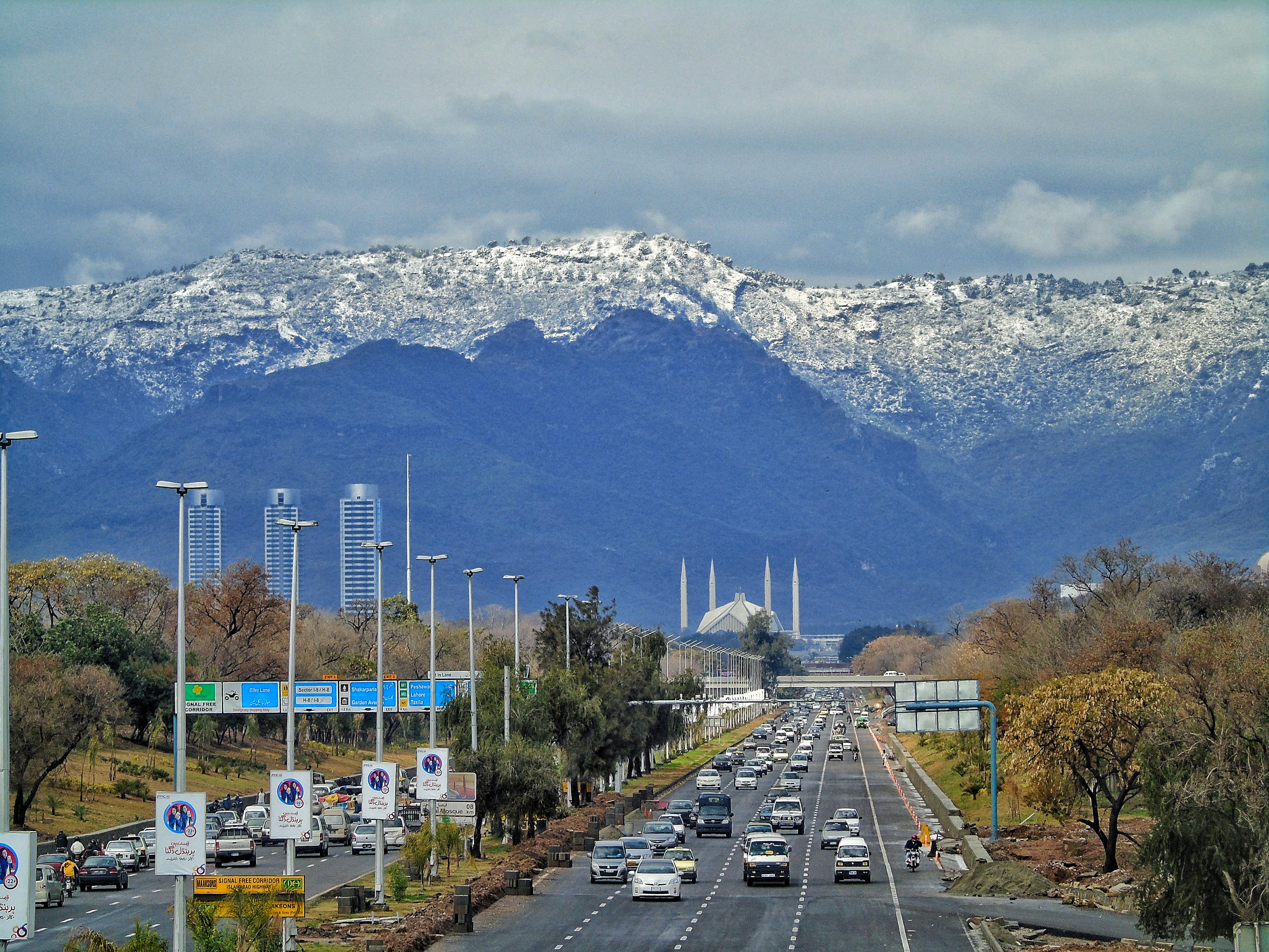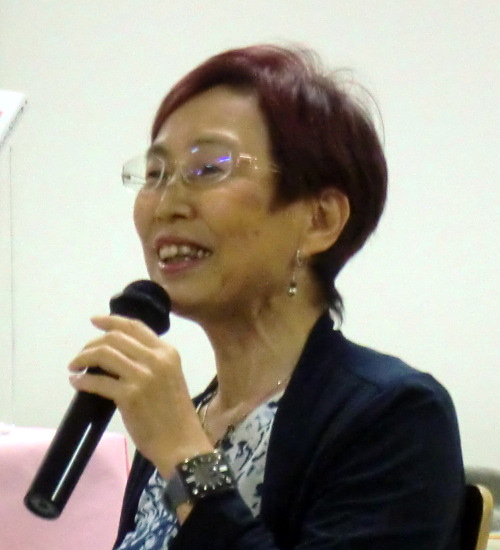|
Tooba Syed
Tooba Syed (Urdu: طوبیٰ سید, born May 29, 1991) is a Pakistani feminist organiserwriter and gender researcher. She is the secretary information and publishing of the feminist organization Women Democratic Front. Activism Syed is associated with left-wing politics since 2012 when she participated in arranging study circles at the university in Islamabad. She worked in anti-eviction housing rights movement in Islamabad’s katchi abadis (informal settlements) with the All Pakistan Alliance for Katchi Abadis, protesting when the Capital Development Authority decided to demolish twelve such settlements in the capital. Syed has also organized the landless peasants movement and Okara’s women’s resistance movement. Syed arranged political schools to deepen the understanding of methods of organizing progressive political resistance in Pakistan along with social, economic and political structures of inequality and oppression. Syed also worked with the Awami Workers Party. Fe ... [...More Info...] [...Related Items...] OR: [Wikipedia] [Google] [Baidu] |
Islamabad
Islamabad (; ur, , ) is the capital city of Pakistan. It is the country's ninth-most populous city, with a population of over 1.2 million people, and is federally administered by the Pakistani government as part of the Islamabad Capital Territory. Built as a planned city in the 1960s, it replaced Rawalpindi as Pakistan's national capital. The city is notable for its high standards of living, safety, cleanliness, and abundant greenery. Greek architect Constantinos Apostolou Doxiadis developed Islamabad's master plan, in which he divided it into eight zones; administrative, diplomatic enclave, residential areas, educational and industrial sectors, commercial areas, as well as rural and green areas administered by the Islamabad Metropolitan Corporation with support from the Capital Development Authority. Islamabad is known for the presence of several parks and forests, including the Margalla Hills National Park and the Shakarparian. It is home to several landmarks, includin ... [...More Info...] [...Related Items...] OR: [Wikipedia] [Google] [Baidu] |
International Women’s Day
International Women's Day (IWD) is a global holiday celebrated annually on March 8 as a focal point in the women's rights movement, bringing attention to issues such as gender equality, reproductive rights, and violence and abuse against women. Spurred on by the universal female suffrage movement that had begun in New Zealand, IWD originated from labor movements in North America and Europe during the early 20th century. The earliest version was purportedly a "Women's Day" organized by the Socialist Party of America in New York City February 28, 1909. This inspired German delegates at the 1910 International Socialist Women's Conference to propose "a special Women's Day" be organized annually, albeit with no set date; the following year saw the first demonstrations and commemorations of International Women's Day across Europe. After women gained suffrage in Soviet Russia in 1917 (the beginning of the February Revolution), IWD was made a national holiday on March 8; it was sub ... [...More Info...] [...Related Items...] OR: [Wikipedia] [Google] [Baidu] |
Feminism In Pakistan
Feminism in Pakistan refers to the set of movements which aim to define, establish, and defend the rights of women in Pakistan.This may involve the pursuit of equal political, economic, and social rights, alongside equal opportunity. These movements have historically been shaped in response to national and global reconfiguration of power, including colonialism, nationalism, Islamization, dictatorship, democracy, and the War on Terror. The relationship between the women's movement and the Pakistani state has undergone significant shifts from mutual accommodation to confrontation and conflict. Background Pakistan ranks third-worst – 151 out of 153 – on the Gender Parity Index of the World Economic Forum (WEF) Pakistan's women literacy is so low that more than five million primary-school-age girls don't go to school. According to UNICEF, 18 percent of Pakistani girls are married before turning 18. The prevalence and incidence of forced conversion and marriage are difficult to a ... [...More Info...] [...Related Items...] OR: [Wikipedia] [Google] [Baidu] |
Women In Pakistan
Women in Pakistan make up 48.76% of the population according to the 2017 census of Pakistan. Women in Pakistan have played an important role throughout Pakistan's history and they are allowed to vote in elections since 1956. In Pakistan, women have held high offices including that of the Prime Minister, Speaker of the National Assembly, Leader of the Opposition, as well as federal ministers, judges, and serving commissioned posts in the armed forces. Lieutenant General Nigar Johar, attaining the highest military post for a woman. Benazir Bhutto was sworn in as the first woman Prime Minister of Pakistan on 2 December 1988. The status of women in Pakistan differs considerably across classes, regions and the rural/urban divide due to the uneven socioeconomic development and the impact of tribal and feudal social formations on lives of women in Pakistan. Gender Concerns International reports that the overall women's rights in Pakistan have improved with increasing number of wome ... [...More Info...] [...Related Items...] OR: [Wikipedia] [Google] [Baidu] |
Living People
Related categories * :Year of birth missing (living people) / :Year of birth unknown * :Date of birth missing (living people) / :Date of birth unknown * :Place of birth missing (living people) / :Place of birth unknown * :Year of death missing / :Year of death unknown * :Date of death missing / :Date of death unknown * :Place of death missing / :Place of death unknown * :Missing middle or first names See also * :Dead people * :Template:L, which generates this category or death years, and birth year and sort keys. : {{DEFAULTSORT:Living people 21st-century people People by status ... [...More Info...] [...Related Items...] OR: [Wikipedia] [Google] [Baidu] |
Socialist Feminists
Socialist feminism rose in the 1960s and 1970s as an offshoot of the feminist movement and New Left that focuses upon the interconnectivity of the patriarchy and capitalism. However, the ways in which women's private, domestic, and public roles in society has been conceptualized, or thought about, can be traced back to Mary Wollstonecraft's ''A Vindication of the Rights of Woman'' (1792) and William Thompson's utopian socialist work in the 1800s. Ideas about overcoming the patriarchy by coming together in female groups to talk about personal problems stem from Carol Hanisch. This was done in an essay in 1969 which later coined the term 'the personal is political.' This was also the time that second wave feminism started to surface which is really when socialist feminism kicked off. Socialist feminists argue that liberation can only be achieved by working to end both the economic and cultural sources of women's oppression. Socialist feminism is a two-pronged theory that broadens ... [...More Info...] [...Related Items...] OR: [Wikipedia] [Google] [Baidu] |
Khyber Pakhtunkhwa
Khyber Pakhtunkhwa (; ps, خېبر پښتونخوا; Urdu, Hindko: خیبر پختونخوا) commonly abbreviated as KP or KPK, is one of the Administrative units of Pakistan, four provinces of Pakistan. Located in the Geography of Pakistan, northwestern region of the country, Khyber Pakhtunkhwa is the smallest province of Pakistan by land area and the Demographics of Pakistan, third-largest province by population after Punjab, Pakistan, Punjab and Sindh. It shares land borders with the Pakistani provinces of Balochistan, Pakistan, Balochistan to the south, Punjab, Pakistan, Punjab to the south-east and province of Gilgit-Baltistan to the north and north-east, as well as Islamabad Capital Territory to the east, Azad Jammu and Kashmir, Autonomous Territory of Azad Jammu and Kashmir to the north-east. It shares an Durand Line, international border with Afghanistan to the west. Khyber Pakhtunkhwa is known as a tourist hot spot for adventurers and explorers and has a varied landsca ... [...More Info...] [...Related Items...] OR: [Wikipedia] [Google] [Baidu] |
Socialist
Socialism is a left-wing economic philosophy and movement encompassing a range of economic systems characterized by the dominance of social ownership of the means of production as opposed to private ownership. As a term, it describes the economic, political and social theories and movements associated with the implementation of such systems. Social ownership can be state/public, community, collective, cooperative, or employee. While no single definition encapsulates the many types of socialism, social ownership is the one common element. Different types of socialism vary based on the role of markets and planning in resource allocation, on the structure of management in organizations, and from below or from above approaches, with some socialists favouring a party, state, or technocratic-driven approach. Socialists disagree on whether government, particularly existing government, is the correct vehicle for change. Socialist systems are divided into non-market and market f ... [...More Info...] [...Related Items...] OR: [Wikipedia] [Google] [Baidu] |
Kamla Bhasin
Kamla Bhasin (24 April 1946 – 25 September 2021) was an Indian developmental feminist activist, poet, author and social scientist. Bhasin's work, that began in 1970, focused on gender education, human development and the media. She lived in New Delhi, India. She was best known for her work with Sangat - A Feminist Network and for her poem ''Kyunki main ladki hoon, mujhe padhna hai''. In 1995, she recited a refurbished, feminist version of the popular poem ''Azadi'' (Freedom) in a conference. She was also the South Asia coordinator of One Billion Rising. She resigned from her job at the U.N. in 2002, to work with Sangat, of which she was a founder member and adviser. She believed in a form of advocacy that combines feminist theory and community action. She worked with underprivileged women from tribal and working communities, often using posters, plays and other non literary methods to get through to communities with low literacy rates. She had always maintained that in order ... [...More Info...] [...Related Items...] OR: [Wikipedia] [Google] [Baidu] |




.jpg)